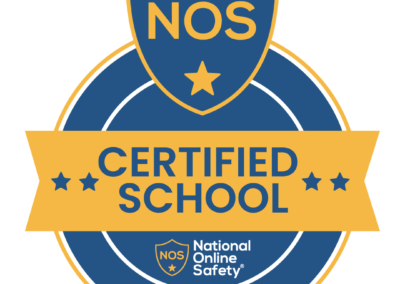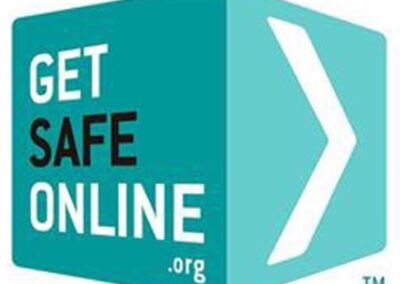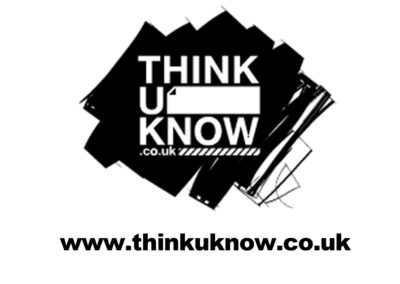IN THIS SECTION
Here at St. Hild’s Church of England school we believe that safety on the internet is paramount and during your child’s time at school we actively monitor and filter internet access but it is not always easy for parents to do so in the same way.
As well as computer access, more commonly smartphones are an increasing source of internet use, and while overall the internet and social media can be a positive force for good, it is important we as a school recognise that it can also in some cases cause issues for pupils at the school.
If you have any Safeguarding concerns about your online safety, please report to any member of staff in school. The Safeguarding Team at school will be notified and will work to support you or any individual or group that you are concerned about OR email sth-safeguarding@neatat.org.uk
To aid you as parents, as well as teaching pupils at the school how to be safe on the internet, you can visit the links below for assistance with particular topics. All of the links below are from the www.thinkuknow.co.uk website produced by the UK Government and the Child Exploitation and Online Protection Centre and the charity Childline.
National Online Safety Certified School
St Hild’s Church of England School has successfully completed a comprehensive online safety training programme demonstrating its commitment to keeping children and young people safe online.
The St Hild’s Church of England School – has received a National Online Safety Certified School Accreditation (2023-2024 )for its whole school community approach to protecting children in the online world.
James Southworth, co-founder of National Online Safety, said: “Congratulations to everyone at St Hild’s Church of England School on becoming a National Online Safety Certified School. By completing our training programme, the school has shown its strong commitment to implementing an effective whole school approach to online safety.”
“It can be increasingly difficult for schools and parents to stay ahead of online threats and ensure both children and staff are safeguarded from potentially harmful and inappropriate online material. We arm schools with the knowledge they need to understand online dangers and react in the best way possible to any problems.”
More useful E-Safety Advice and Support websites.
Facebook launches new live streaming app – no privacy settings:
You will hopefully be aware of TikTok (previously Musically) which allows for short (15 second) live streaming videos and the concerns particularly regarding Child Sexual Exploitation. Facebook look to be getting in on the action with their own version called Lasso. The app has just come out in the US; historically that means it will be here in the UK very soon. The app has been reported as having NO privacy settings. For a little more information see here.
Fortnite Scams
Fortnite is the most popular online game ever seen, so it’s no surprise to see scams in big numbers. Between September and October this year there were over 53,000 reported scams. Most of these scams are preying on the vulnerability of children when they’re searching for V-Bucks (in-game currency) See here for some more information.
Yubo
Yubo is a social media platform, available on iOS and Android which has been criticised for the way some young users have been exposed to inappropriate content and harassment. Please find more information below on how to set up parental controls in Yubo.
Cyber Mentor: Thrivetalk.com
CEOPS: Child Exploitation and Online Protection
Childline: Online, Phone, Anytime – Advice and support for children
Get Safe Online: Free expert advice
Keeping Your Child Safe Online
A Checklist for Parents and Carers
As a parent you’ll probably know how important the internet is to children and young people. They use it to learn, play, socialise and express themselves in all types of creative ways. This may be through sharing photos and videos, blogging, gaming, or even developing their own apps. It is a place of amazing opportunities.
The technology children use in their daily lives can seem daunting. You might worry about the risks they can face online, such as bullying, contact from strangers, as well as the possibility of access to inappropriate or illegal content. To help them stay safe, it’s important that you understand how your child uses the internet.
By following this simple checklist, you can start to protect them and decrease the risks they face:
I have asked my child to show me sites they use – By doing so, your child is including you in their online life and social activity. Show an interest and take note of the names of their favourite sites. You can then re-visit these when you are alone. Take your time and explore the space, find out how to set the safety features and learn how to report any issues directly to the site.
I have asked my child to set their profile settings to private – Social networking sites, such as Facebook, are used by children to share information, photos and just about everything they do! Encourage your child to set their privacy settings to private. They need to think about the information they post online as it could be copied and pasted anywhere, without their permission. If it got into the wrong hands, somebody may wish to use it against them or worst of all try to locate them in the real world.
I have asked my child about their online friends – We know that people lie online about who they are and may create fake identities. It is very important children understand this. Whether they are visiting a social network or a gaming site, the safety messages are the same. Children and young people must never give out personal information and only be “friends” with people they know and trust in the real world.
I have set appropriate parental controls on my child’s computer, mobile and games console – Filters on computers and mobiles can prevent your child from viewing inappropriate and possibly illegal content. You can activate and change levels depending on your child’s age and abilities. You can also set time restrictions for using the internet or games. They can be free and easy to install. Call your service provider who will be happy to assist or visit CEOP’s parents’ site for further information. Explain to your child why you are setting parental controls when you talk to them about their internet use.
My child has agreed to tell me if they are worried about something online – Sometimes children get into situations online where they don’t feel comfortable or see something they don’t want to see. By opening up the communication channels and talking to your child about the internet, their favourite sites and the risks they may encounter, they are more likely to turn to you if they are concerned about something.
I know where to get help if I’m concerned about my child – The CEOP Safety Centre provides access to a range of services. If you are concerned that an adult has made inappropriate contact with your child you can report this directly to CEOP. You can also find help if you think your child is being bullied, or if you’ve come across something on the internet which you think may be illegal.



